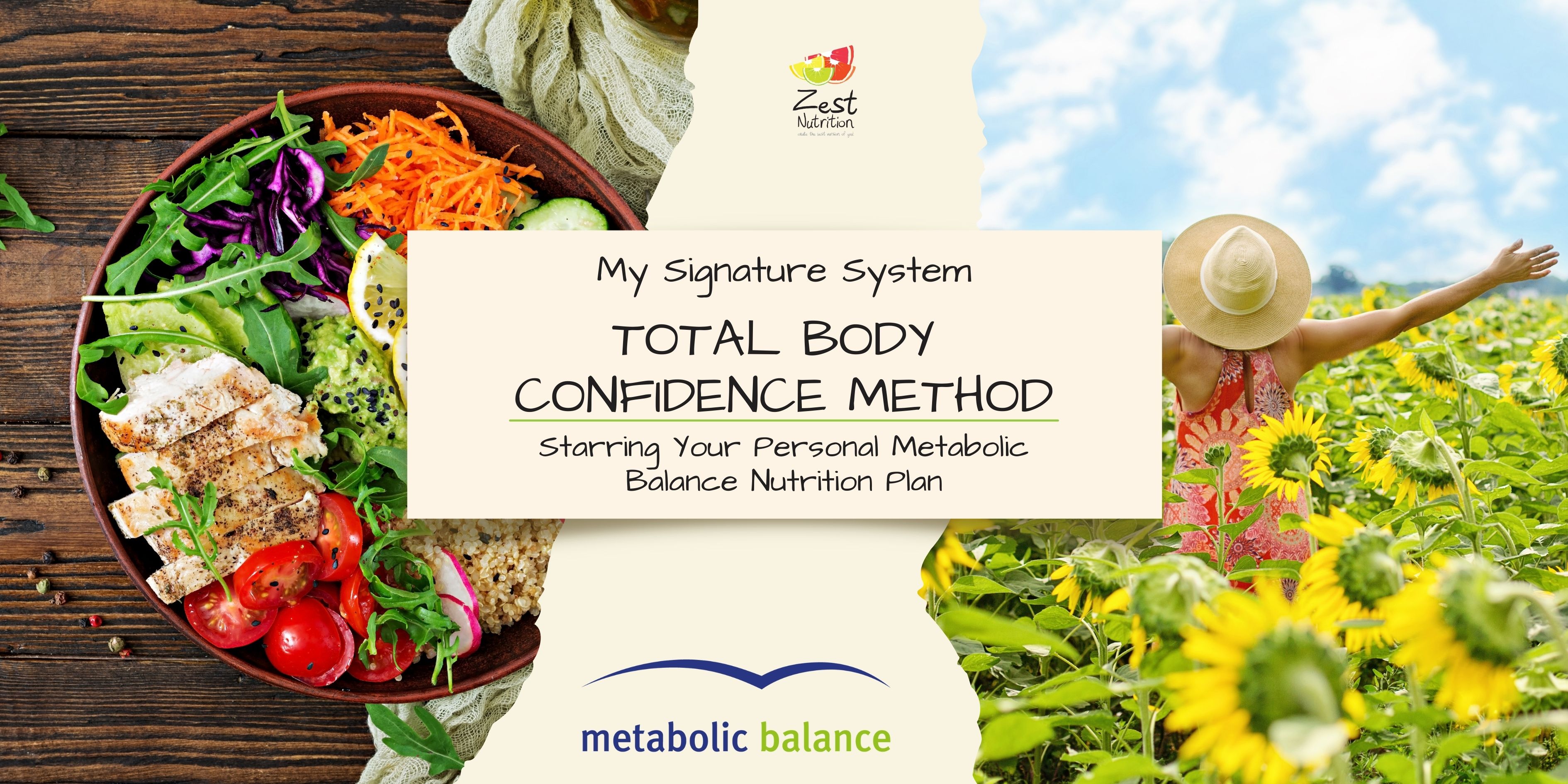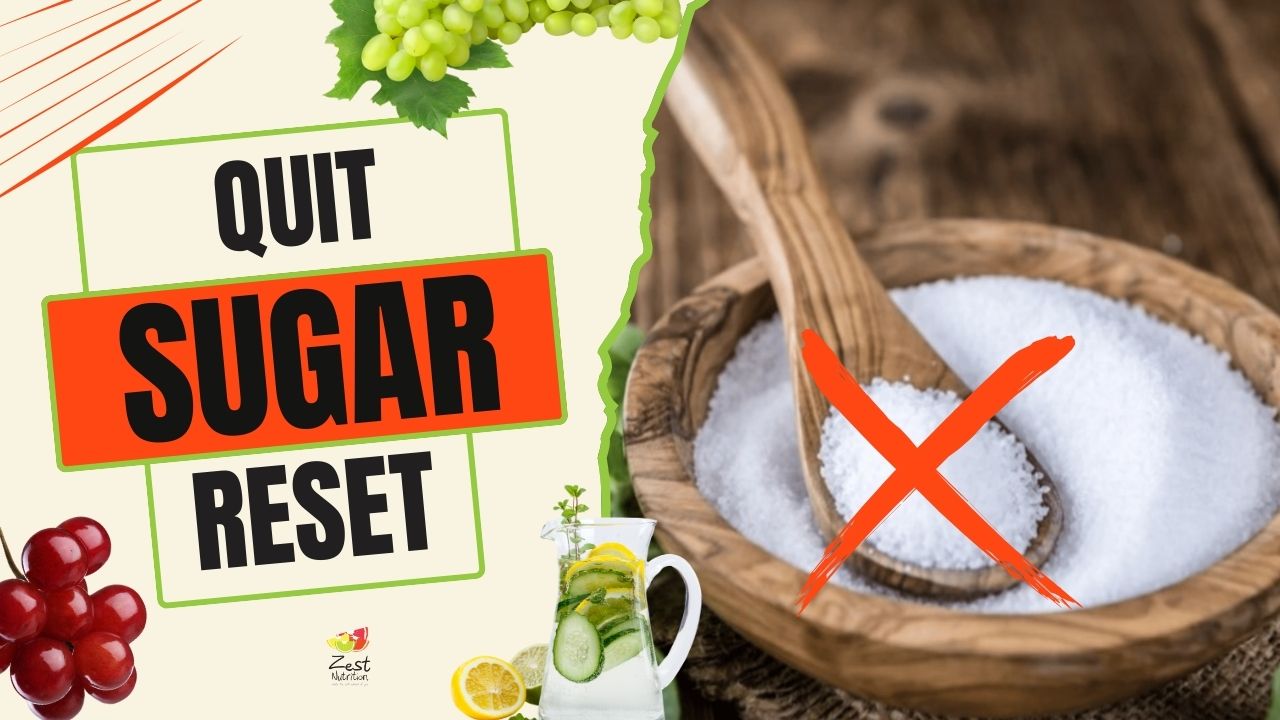Home
I help women who feel disconnected, exhausted, and frustrated with their changing bodies feel confident and powerful in their bodies again!
Through personalised metabolic nutrition, belief rewiring, and delicious real food, not just rabbit food and — and yes, the weight comes off too.
Featuring Metabolic Balance® for truly personalised nutrition.
Stop fighting your body. Start feeling powerful in it.
Your journey starts here ↓
Meet Zita
Food can heal. Food can energise you. And food can help you feel like yourself again.
I believe that understanding how to nourish your body properly is one of the most powerful things you can do for your health — especially in midlife, when quick fixes and diets stop working.
When you work with me, you get more than just a meal plan or nutrition advice. You get education, personalised guidance, and practical tools that help you understand your body, build confidence around food, and create habits that actually last. You get your own Women’s Vitality & Metabolic Nutrition Coach.
I support women to lose weight in a healthy, sustainable way through personalised nutrition using Metabolic Balance®, alongside mindset support that helps shift old patterns and self-sabotage. My approach is about nourishing your body properly — not restricting it — so weight loss becomes a natural outcome, not a constant battle.
I also work with women experiencing digestive issues, food intolerances, low energy, and fatigue. I take a whole-body approach, looking beyond symptoms to understand what your body truly needs, so you can heal, feel energised, and feel back in control of your health again.
This is about supporting your body — not fighting it — and creating health that feels doable, empowering, and sustainable.
How I Help Women
I'm about supporting women to feel nourished, supported, and confident — not perfect.
Helping you stop fighting your body and start working with it.
Creating personalised nutrition using Metabolic Balance®, tailored to your body, hormones, and lifestyle — no one-size-fits-all dieting.
Supporting healthy, sustainable weight loss by nourishing your body properly, not restricting it or living on rabbit food.
Guiding the mindset shifts and habits around food so you feel calm, confident, and in control again.
Taking a whole-body approach, supporting digestion, food intolerances, energy levels, and fatigue.
Educating and empowering you with the knowledge and tools to maintain your results long-term.
With my background and experience as a nutritionist, chef, Master Health Coach, and fitness coach, I support you using a whole-body and mindset approach. You’re not just chasing results — you’re learning how to nourish your body, build confidence, and sustain your health in a way that fits real life. You get your own personal Women’s Vitality & Metabolic Nutrition Coach when you work with me.
Check out our
Signature Offers
↓

Total Body Confidence Method
My signature body-and-mind transformation designed for busy women in midlife who are ready to stop dieting, lose weight, and feel confident in their clothes again — through personalised nutrition, mindset support, and real-life strategies that actually fit.
Includes your personal Metabolic Balance plan.
Choose your level of support with 3, 4, or 6-month journey options.

Personalised Nutrition with Metabolic Balance®
A personalised nutrition program designed to support healthy weight loss, improved energy, and better digestion by giving your body exactly what it needs —
without guesswork or generic meal plans.
This option is ideal if you’re looking for structured, one-to-one nutrition support using Metabolic Balance®, without the full coaching container of my Total Body Confidence Method.

21-Day Quit Sugar Reset
A simple, supportive 21-day reset designed to help you reduce sugar cravings, balance your energy, and feel back in control of food again — using real food, gentle structure, and practical guidance that fits busy lives.
This is an accessible, low-pressure place to start if you want to feel better fast and build strong foundations before moving into personalised nutrition or deeper support.
Testimonials
Some kind words from amazing clients
CREATING THE BEST VERSION OF YOU! CREATING THE BEST VERSION OF YOU! CREATING THE BEST VERSION OF YOU! CREATING THE BEST VERSION OF YOU! CREATING THE BEST VERSION OF YOU! CREATING THE BEST VERSION OF YOU! CREATING THE BEST VERSION OF YOU! CREATING THE BEST VERSION OF YOU! CREATING THE BEST VERSION OF YOU! CREATING THE BEST VERSION OF YOU! CREATING THE BEST VERSION OF YOU! CREATING THE BEST VERSION OF YOU! CREATING THE BEST VERSION OF YOU! CREATING THE BEST VERSION OF YOU! CREATING THE BEST VERSION OF YOU! CREATING THE BEST VERSION OF YOU! CREATING THE BEST VERSION OF YOU! CREATING THE BEST VERSION OF YOU! CREATING THE BEST VERSION OF YOU! CREATING THE BEST VERSION OF YOU! CREATING THE BEST VERSION OF YOU! CREATING THE BEST VERSION OF YOU! CREATING THE BEST VERSION OF YOU! CREATING THE BEST VERSION OF YOU! CREATING THE BEST VERSION OF YOU! CREATING THE BEST VERSION OF YOU! CREATING THE BEST VERSION OF YOU! CREATING THE BEST VERSION OF YOU! CREATING THE BEST VERSION OF YOU! CREATING THE BEST VERSION OF YOU! CREATING THE BEST VERSION OF YOU! CREATING THE BEST VERSION OF YOU! CREATING THE BEST VERSION OF YOU! CREATING THE
↓ MY GIFT TO YOU
Get This Amazing
Free Guide!

Cravings Reset Toolkit
Start Your Journey to Breaking Free from Cravings - Naturally

Inside the kit you will learn:
The 6 foundational steps to reset cravings
A calming “90-second craving pause” technique
A better-treat blueprint
Your printable Cravings Reset Checklist
Yours FREE!

"Easy, no nonsence guide"
"Finally, a simple easy to follow guide that works."
Newsletters
Don't miss out on updates!
No diets. No overwhelm. Just simple, nourishing guidance for midlife health and weight loss.
Think of this as a little support note in your inbox — real food, real talk, and practical tools to help you feel energised, confident, and like yourself again.





